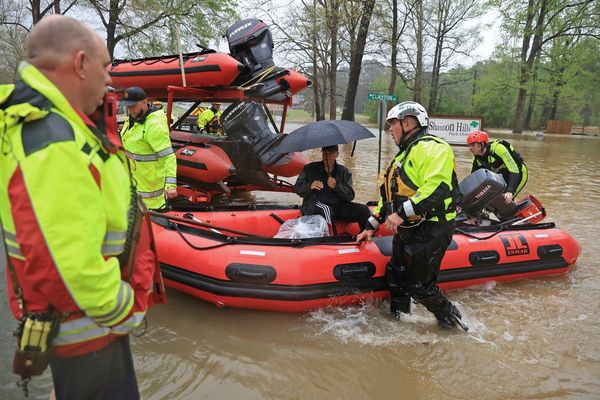
The UK may be entering its third wave of coronavirus this year, researchers warn, as official figures show infections are on the rise again in England and Northern Ireland.
The Office for National Statistics said its latest analysis of swabs from households across Britain revealed a mixed picture with a “small increase” in positive tests in England and Northern Ireland, while the trend in Wales and Scotland remained unclear.
The ONS data, which give the most reliable picture of the state of the UK outbreak, suggest that the steady fall in infections over recent months may have gone into reverse as cases are driven up by the more transmissible BA.4 and BA.5 Omicron variants.
According to the ONS survey, an estimated 797,500 people in England and 27,700 in Northern Ireland would have tested positive for Covid in the week ending 2 June, up from 784,100 and 24,300 respectively in the week before.
The emergence in November last year of the first Omicron variant, BA.1, sparked waves of Covid around the world. This spring, a second UK wave was fuelled by a more contagious relative known as BA.2. While BA.2 is now in decline, it has two more transmissible descendants, namely BA.4 and BA.5, both of which are on the rise.
Public health officials are particularly concerned about BA.5 which is spreading faster than BA.4 and responsible for fresh spikes in cases in Europe, particularly in Portugal and Germany. At the end of May, BA.5 made up nearly 14% of Covid virus genomes analysed in England, nearly double that for BA.4.
The latest ONS report shows that the percentage of people testing positive for coronavirus increased in London, the south-east and the north-wwest, but fell in the east Midlands, and Yorkshire and the Humber. While infections had been falling in all age groups, rates have now either levelled out or started to rise, with clear increases evident in 35- to 49-year-olds.
Sarah Crofts, head of analytical outputs on the ONS Covid Infection Survey, said: “Today’s data shows a mixed picture for infection rates across the UK, with small increases in England and Northern Ireland, likely driven by increasing trends in Omicron BA.4 and BA.5 variants.”
Dr Stephen Griffin, a virologist at the University of Leeds, said Jubilee celebrations might have contributed to the rise, but were only part of the large increase in “mixing, travelling and interactions between large groups” that continue unmitigated in the UK since all protections were dropped earlier this year.
He said a particular concern was the recent rise in Covid hospitalisations. This may be driven solely by a greater number of infections, but mutations in the newest Omicron variants could also play a role.
“It is important to emphasise that we are better placed immunologically to counter much of the potential for severe disease than we were in 2020 or 2021 due to widespread vaccinations,” Griffin said. “As we enter, astonishingly, our third wave of 2022, a complex pattern of immunity exists induced by vaccines, boosters and prior infection.”
The spring booster programme and further shots in the autumn should prevent much of the severe disease seen in earlier waves of Covid, but Griffin said concerns remain about the situation in schools, since less than 10% of under-12s are vaccinated. “Given the lack of protections in schools, this will likely prompt further infections in children and staff, with predictable disruption across the board and further increases in long Covid,” he said.







